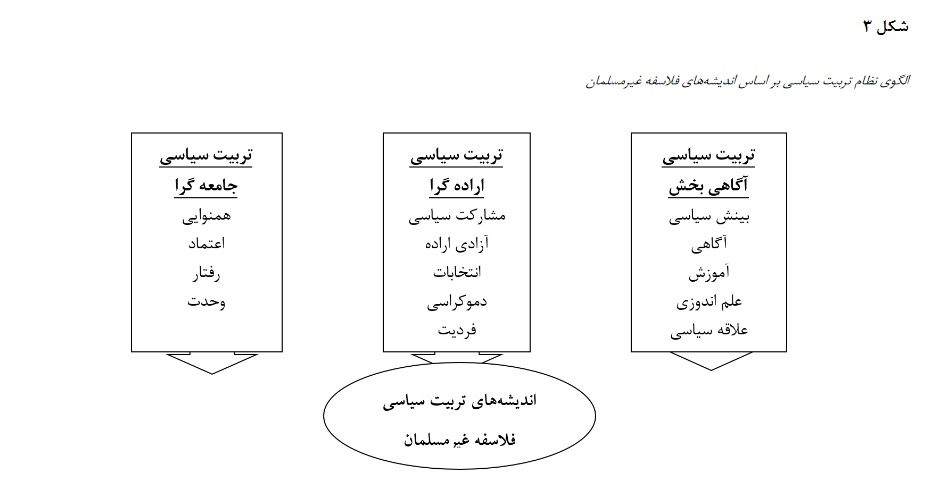Political Education in the Educational System
Keywords:
political education, social education, justice, political participation, MotahariAbstract
The aim of this study is to present a model of political education from the perspective of Muslim and non-Muslim scholars. The research method is qualitative, utilizing a deductive content analysis approach that analyzes the philosophical foundations of political education through a descriptive-interpretive approach. The statistical population in this study includes the content analysis of all books and resources written on the subject of political education. The sampling method is purposive sampling. In this research, credibility criteria were used to examine validity, and reliability criteria were used to assess reliability. The results obtained from the open or initial coding of the political education thoughts of Muslim philosophers indicate that 38 initial concepts were extracted through open coding. After determining open codes and central categories, selective coding was pursued. The results of this coding indicated that the political education thoughts of Islamic philosophers are based on epistemological political education, participation-oriented, Sharia-based, justice-centered, and unity-centered principles. Subsequently, the results from the open or initial coding of the political education thoughts of non-Muslim philosophers indicate that 43 initial concepts were obtained through open coding. After determining open codes and central categories, selective coding was pursued, revealing that the political education thoughts of non-Muslim philosophers are based on enlightening political education, will-oriented, and society-centered principles. Overall, referencing these results can be a significant and effective step towards elucidating a model of political education in the educational system, allowing students to be educated with a focus on political values.
Downloads







